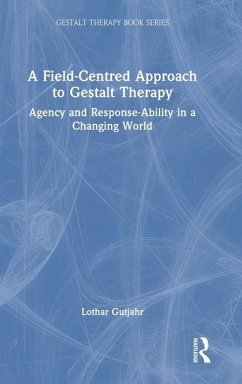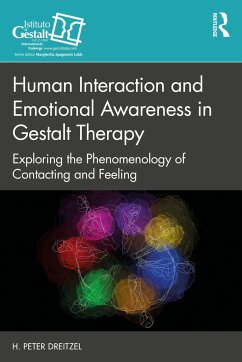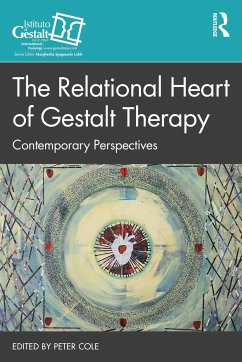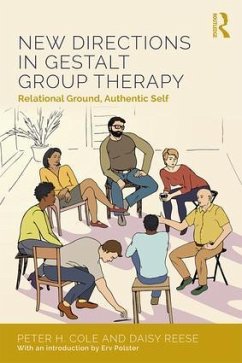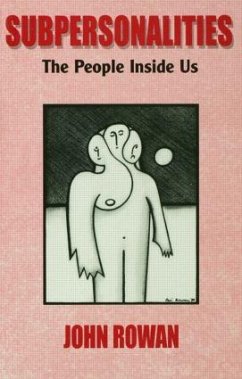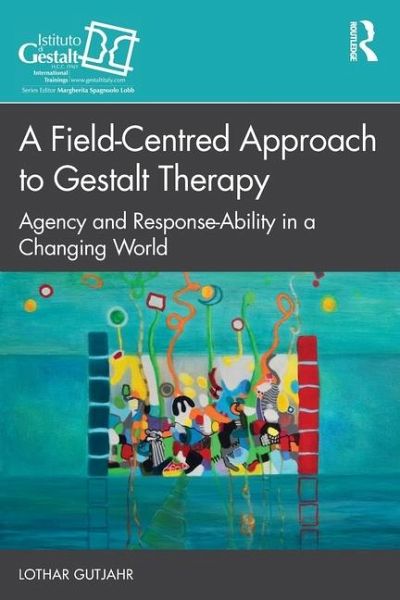
A Field-Centred Approach to Gestalt Therapy
Agency and Response-ability in a Changing World
Versandkostenfrei!
Versandfertig in 6-10 Tagen
34,99 €
inkl. MwSt.
Weitere Ausgaben:

PAYBACK Punkte
17 °P sammeln!
In Gestalt therapy, sociological, political, and economic research is often neglected or ignored. Drawing on analyses about current societal conditions, this book considers that there is no such thing as a 'postmodern' therapy and offers a new approach to Gestalt therapy.Gestalt therapy is still currently based on the Cartesian worldview, even if relational approaches are in search for an 'in-between'. The author's approach of Gestalt therapy is based on an idea by the founders: "Contact is the first reality" - so the field coemerges and coexists with individuals' perceptions providing specifi...
In Gestalt therapy, sociological, political, and economic research is often neglected or ignored. Drawing on analyses about current societal conditions, this book considers that there is no such thing as a 'postmodern' therapy and offers a new approach to Gestalt therapy.
Gestalt therapy is still currently based on the Cartesian worldview, even if relational approaches are in search for an 'in-between'. The author's approach of Gestalt therapy is based on an idea by the founders: "Contact is the first reality" - so the field coemerges and coexists with individuals' perceptions providing specific conditions, demands, limitations and opportunities. An individual's field is not an afterthought established by the perspective of the first-person-singular (i.e. individuals) but a 'conditio sine qua non'. Gutjahr reflects on both theoretical and practical aspects of the field's many processes of resonance. Putting the field consistently at the centre of his approach, the author describes the main tenets expanding on previous versions of Gestalt therapy.
This important new book is at the cutting edge of the current discussion of relational and field-oriented approaches to Gestalt therapy, and will be of particular interest to practitioners of Gestalt therapy, psychotherapists, phenomenologists, as well as theorists of philosophy, sociology and therapy.
Gestalt therapy is still currently based on the Cartesian worldview, even if relational approaches are in search for an 'in-between'. The author's approach of Gestalt therapy is based on an idea by the founders: "Contact is the first reality" - so the field coemerges and coexists with individuals' perceptions providing specific conditions, demands, limitations and opportunities. An individual's field is not an afterthought established by the perspective of the first-person-singular (i.e. individuals) but a 'conditio sine qua non'. Gutjahr reflects on both theoretical and practical aspects of the field's many processes of resonance. Putting the field consistently at the centre of his approach, the author describes the main tenets expanding on previous versions of Gestalt therapy.
This important new book is at the cutting edge of the current discussion of relational and field-oriented approaches to Gestalt therapy, and will be of particular interest to practitioners of Gestalt therapy, psychotherapists, phenomenologists, as well as theorists of philosophy, sociology and therapy.





